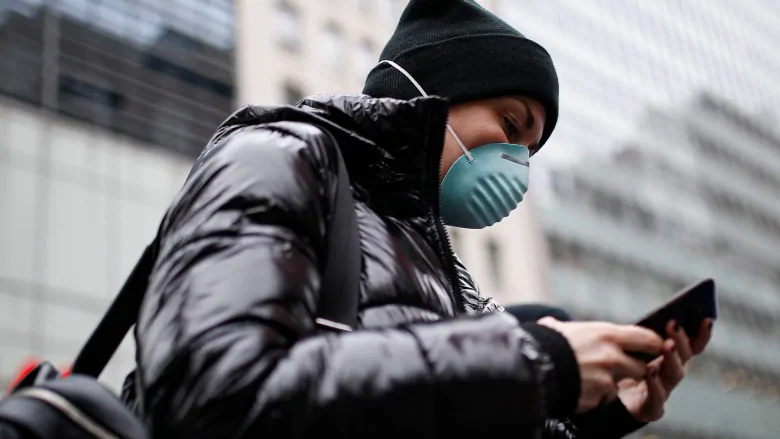Prime Minister Justin Trudeau hasn’t ruled out using smartphone data to track whether people are complying with public health officials’ pleas for them to stay inside to curb the COVID-19 pandemic — a notion that raises some thorny ethical dilemmas regarding public health and privacy rights.

Prime Minister Justin Trudeau hasn’t ruled out using smartphone data to track whether people are complying with public health officials’ pleas for them to stay inside to curb the COVID-19 pandemic — a notion that raises some thorny ethical dilemmas regarding public health and privacy rights.
Tracking where the coronavirus will strike next, and convincing people to self-isolate and avoid gatherings, have proven challenging for public health officials around the world. That’s prompted some governments to lean on mobile data to keep tabs on infections — even to predict where the virus is heading.
During his daily media briefing today, Trudeau was asked whether Canada would follow the example of those governments and use telecom data to track Canadians’ compliance with pandemic measures.
“I think we recognize that in an emergency situation we need to take certain steps that wouldn’t be taken in non-emergency situations, but as far as I know that is not a situation we’re looking at right now,” he said.
WATCH: Trudeau on cellphone tracking
Prime Minister Justin Trudeau answers a question about why the government was seeking new spending powers during the COVID-19 pandemic. 1:16
“But as I’ve said, all options are on the table to do what is necessary to keep Canadians safe in these exceptional times.”
Telecommunication companies are now sharing aggregate smartphone data with health authorities in Italy, Germany and Austria to monitor whether people are complying with self-isolation demands to slow the spread of COVID-19.
China, Taiwan and South Korea have taken more invasive measures by using smartphone location pings to trace individuals who have tested positive, or to enforce quarantine orders.
In Israel, the government is being challenged after Prime Minister Benjamin Netanyahu ordered the domestic spy agency to sift through cellphone data that was covertly gathered to fight terrorism to retrace the steps of people who have contracted the novel coronavirus.
The issue was thrust into the Canadian spotlight this morning after Toronto Mayor John Tory mused about obtaining cellphone data from wireless companies to locate large gatherings.
As first reported by The Logic, Tory told an online video-conferencing event Monday night, hosted by TechTO, that data collection is “something we’re doing now.”
“I asked for it, and I’m getting it,” he’s quoted as telling the local meetup organization. “Because the biggest enemy of fighting this thing is people congregating close together.”
A spokesperson later clarified that the mayor was answering a question about ways technology could possibly help fight COVID-19.
“The mayor cited the example of an inquiry he had casually made after someone suggested it not knowing it wasn’t proceeding,” said Don Peat in a statement to CBC News.
“The City of Toronto is not collecting cellphone location data, nor has it received any such data. The City of Toronto will not be using cellphone location data.”
Bell Canada open to sharing information
Canada’s Chief Public Health Officer Dr. Theresa Tam said the option shouldn’t be ruled out of efforts to flatten the caseload curve — the best way to keep the nation’s hospitals from being overwhelmed.
“I think there’s lots of innovative approaches and they should all be examined, obviously with due respect to privacy, ethics and all of those considerations,” she said when asked about data collection.
On Monday, Quebec Premi

